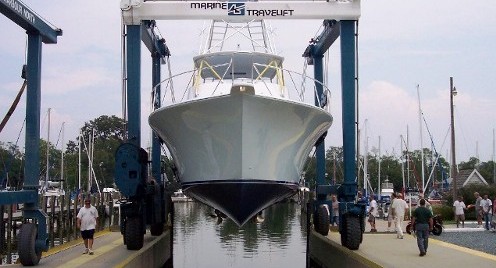Advertisement
Advertisement
Top Mistakes That Lead to a Tow
These are the most common boating blunders that lead to a need for assistance–and how to avoid them.
June 29, 2017
Knowing that you can get a tow if your boat breaks down gives boaters peace of mind, but naturally, we all want to return to the dock under our own power whenever possible. To find out the top reasons why boaters need to call for a tow—and how to avoid making the mistakes that result in such a call—we talked to the experts at Sea Tow.

The number-one reason people call for assistance? It’s no surprise that fuel issues and running out of gas tops the list.
Gas Problems
Fuel-related issues account for a huge proportion of the calls for assistance received by Sea Tow. “Don’t trust your boat’s fuel gauge,” says Sea Tow’s Captain Mike DeGenaro (Charlotte Harbor, FL), who has made fuel drops to scores of boaters who thought they had more fuel in the tank than actually was there. “The gauges are all different. Know your average fuel burn usage per hour and track your hours of use in-between fill-ups. Additionally, take the weather into account, and go by the Rule of Thirds: use one third of the tank going out, one third to get back, and keep one-third in reserve.”
Unfortunately, simply running out of fuel isn’t the only fuel-related problem that can stop a boat in its tracks. Other issues relating to fuel system maintenance and ethanol problems are also common.
“We always suggest full spring maintenance on the fuel system,” says Captain Chris Ward of Sea Tow South Mississippi. “This means changing out all fuel filters and inspecting fuel lines and fuel bulbs.”
Captain Ward also recommends putting 100-percent ethanol-free gasoline in your gas-powered boat’s tank whenever possible. “If boaters do insist on using ethanol fuel, we suggest using a fuel additive such as Star Tron, and using all ethanol-resistant fuel components.”
Planning Ahead
Do you leave the dock with a plan in mind, or do you cast off the lines, point the bow at the horizon, and make it up as you go along? The answer to this question also has a direct bearing on whether or not you end up needing assistance.
“Boaters get in trouble because they alter from Plan A… and then from Plan B,” says Sea Tow CEO Captain Joseph Frohnhoefer III. “They then run out of fuel, it gets dark (they run aground), they get tired and distracted… ”
Be sure to think through your trip. Whether it’s a day-trip, an overnighter, or a longer voyage, online charting allows you to run a route at home, virtually, before doing it on the boat. You can look at alternative routes and the time spent underway—which helps to determine fuel needs, time spent at the helm, expected boat traffic, what other equipment you’ll need, and thoughts on a Plan B in case of emergency. Once you create this plan, it’s important you stick to it.

It’s nice to know that a tow is available just in case, but planning ahead and avoiding the need for it is a smart move.
Seagoing Savvy
Educating yourself is important, especially if you’re a newer boater, and will often make the difference between needing assistance or identifying problems ahead of time and knowing how to fix them. This is especially true when it comes to boat’s systems, and Sea Tow’s experts note that battery systems are another common reason they get calls. You need to know how battery switches work, how many batteries you have, and how you can use or wire them in parallel (linking two batteries together) in case your supply of juice gets low.
Naturally, gaining the knowledge you need begins with taking a boating safety course. But beyond that, you can find reams of solid information in the Captain’s Classroom section of the Sea Tow web site. You should also go out on the water with more experienced boaters as much as possible prior to taking on challenging cruises by yourself. And when venturing out on your own, when in doubt, STOP! Far too many boaters don’t stop to evaluate their uncertainty, and end up running aground, hitting submerged objects, and encountering other avoidable issues.
For more information, also read:
- How to Avoid Common Boating Mistakes
- Top 10 Mistakes Sailors Make: Don’t Do This!
- The Top 10 Mistakes Power Boaters Make: Don’t Do This!
Editor’s Note: Promotional consideration for this article was provided by Sea Tow.
Advertisement
Advertisement












